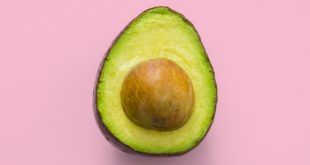 Cholesterol is a type of fat that is found in the foods we eat and is also produced in the body. It is a starting material for the production of bile salts and for steroid hormones such as oestrogen, testosterone and vitamin D. It also plays a vital role as part of the structure of cell membranes.
Cholesterol is a type of fat that is found in the foods we eat and is also produced in the body. It is a starting material for the production of bile salts and for steroid hormones such as oestrogen, testosterone and vitamin D. It also plays a vital role as part of the structure of cell membranes.
Good and bad cholesterol
Cholesterol is often spoken about in terms of ‘good’ and ‘bad’.
High Density Lipoproteins (HDL cholesterol) is commonly referred to as ‘good’ cholesterol. HDL cholesterol picks up excess cholesterol in the body and delivers it to other areas of the body where it is needed or transports it to the liver where it is readied for excretion.
Low Density Lipoproteins (LDL cholesterol) is commonly referred to as ‘bad’ cholesterol. LDL cholesterol also has a positive function in the body but when levels of LDL get too high, it can lead to cholesterol deposits in the arteries, increasing the risk of cardiovascular disease.
Eat more good than bad
Rather than removing fat from your diet, it’s better to eat the right fats and reduce your intake of ‘bad’ or saturated fats.
One of the best fats is the ‘good’ fat from oily fish. Called Omega-3 fats, they are found in salmon, mackerel, tuna and sardines. If you don’t eat fish, they are also available in flaxseeds, walnuts, chia seeds and soybeans.
Polyunsaturated fats are also recommended. They are found in plant foods especially nuts, seeds and cold pressed vegetable oils.
It’s very important to limit synthetic trans fats may be found in processed foods, margarines, bakery foods and takeaway meals.
Fibre
Fibre plays an important role in managing cholesterol and may also help to decrease absorption of dietary cholesterol.
Eat plenty of fibrous vegetables, fruits and wholegrains and add oats to your diet because the betaglucan in oats has been proven to help lower cholesterol.
Exercise
An active lifestyle is essential for cholesterol management as it may help to increase HDL cholesterol levels, promotes a healthy heart and cardiovascular system and helps maintain a healthy waistline.

Blackmores Smart Heart™ can be used as part of your cholesterol management. It’s a natural oat bran powder, rich in betaglucan. A daily serve of two tablespoons delivers 3 grams of the key component betaglucan which, when consumed as part of a healthy diet, low in saturated fats, helps to reduce cholesterol.
Blackmores Smart Heart™ has a neutral flavour so it can be easily added to cereals, yoghurt and smoothies or to many of your favourite recipes.
Join the Blackmores Smart Heart™ Cholesterol Challenge, an 8-week program to help you on your cholesterol lowering journey.
Click here to receive information, diet and lifestyle tips, delicious recipes and reminders to keep you motivated.









Join the Discussion
Type out your comment here:
You must be logged in to post a comment.